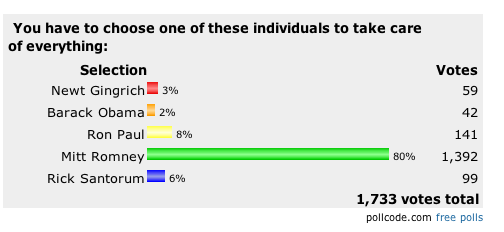In The New York Times today, Adam Liptak writes about the 2010 Citizens United decision and a challenge presented by a recent Montana Supreme Court case that challenges that decision–contrary to the Constitution’s Supremacy Clause, but hey, nothing to see here.
In his write up, Liptak says the following:
In that same statement, Justice Ginsburg said the United States Supreme Court should now use the Montana case to weigh what the nation has learned since January 2010, when Citizens United overturned two precedents and allowed unlimited campaign spending by corporations and unions. The new case represented, she wrote, “an opportunity to consider whether, in light of the huge sums deployed to buy candidates’ allegiance, Citizens United should continue to hold sway.”
What’s so hard about getting the bolded part right? What Liptak writes is misleading and could lead the unwary–all Times readers?–to think corporations can now give unlimited amounts of money to their favorite candidates. The bolded part is all the more misleading given that it’s followed by Justice Ginsburg’s quote that the large sums could “buy candidates’ allegiance,” again, giving the impression that the money will flow directly to the candidate.
What’s missing? The word “independent.” According to Citizens United, corporations and unions can make unlimited “idependent expenditures,” which Justice Kennedy says “By definition, an independent expenditure is political speech presented to the electorate that is not coordinated with a candidate.” Thus, no money flows directly into a candidate’s pockets (and if it did, both candidate and corporation/union would be in trouble). And thus, the words “unlimited campaign spending” are misleading.
Note well that I’m not a Pollyanna. I realize that coordination could take place behind closed doors–subject, of course, to behing discovered. But that’s another post for another day. Today, I’m just pointing out the Liptak fudged. And that’s no good either.
UPDATE: By the way, it’s worth pointing out that according to former federal judge, now law Professor Michael McConnell, writing in The Wall Street Journal:
In a sense, Citizens United did have an important effect on the Wisconsin election. But the effect was almost exactly the opposite of what many pundits imply.
Labor unions poured money into the state to recall Mr. Walker. According to the Center for Public Integrity, the NEA (National Education Association), the nation’s largest teachers union, spent at least $1 million. Its smaller union rival, the AFT (American Federation of Teachers), spent an additional $350,000. Two other unions, the SEIU (Service Employees International Union, which has more than one million government workers) and Afscme (American Federation of State, County and Municipal Employees), spent another $2 million. Little or none of these independent expenditures endorsing a candidate would have been legal under federal law before Citizens United.
By contrast, the large spenders on behalf of Mr. Walker were mostly individuals. According to the Center for Public Integrity, these included Diane Hendricks, Wisconsin’s wealthiest businesswoman, who spent over half a million dollars on his behalf; Bob J. Perry, a Texas home builder, who spent almost half a million; and well-known political contributors such as casino operator Sheldon Adelson and former Amway CEO Dick DeVos, who kicked in a quarter-million dollars each. Businessman David Koch gave $1 million to the Republic Governors Association, which spent $4 million on the Wisconsin race.
These donations have nothing to do with Citizens United. Individuals have been free to make unlimited independent expenditures in support of candidates since the Supreme Court case of Buckley v. Valeo (1976).
I have seen no published reports of any corporate expenditures on behalf of Mr. Walker, though presumably the $500,000 Chamber of Commerce contribution to the Republican Governors Association fund came largely from corporate sources. Several groups also ran issue ads that presumably benefited Mr. Walker; these groups are not required to disclose their donors and may have received corporate contributions. Corporations and unions could run issue ads before Citizens United, as long as they did not clearly refer to a candidate.
For the most part, though, Mr. Walker’s direct, big-ticket support came from sources that have been lawful for decades.
His opponent, Milwaukee Mayor Tom Barrett, got his support primarily from labor unions, whose participation was legitimized by Citizens United. Without that decision so demonized by the political left, Mr. Barrett would have been at even more of a financial disadvantage.
Interesting. (Emphasis supplied)

